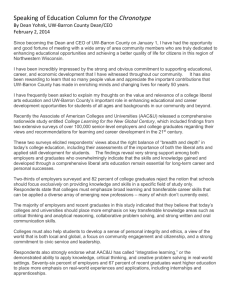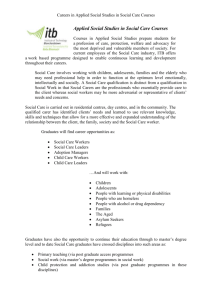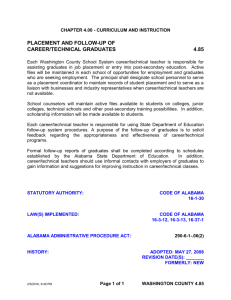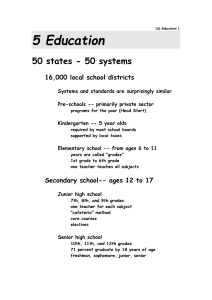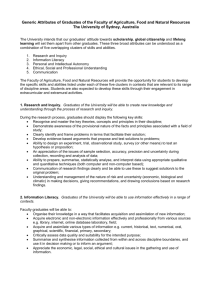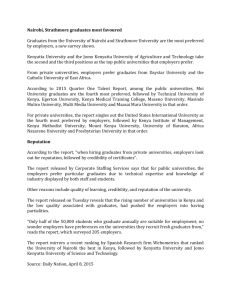strategies for enhancing information literacy among university
advertisement
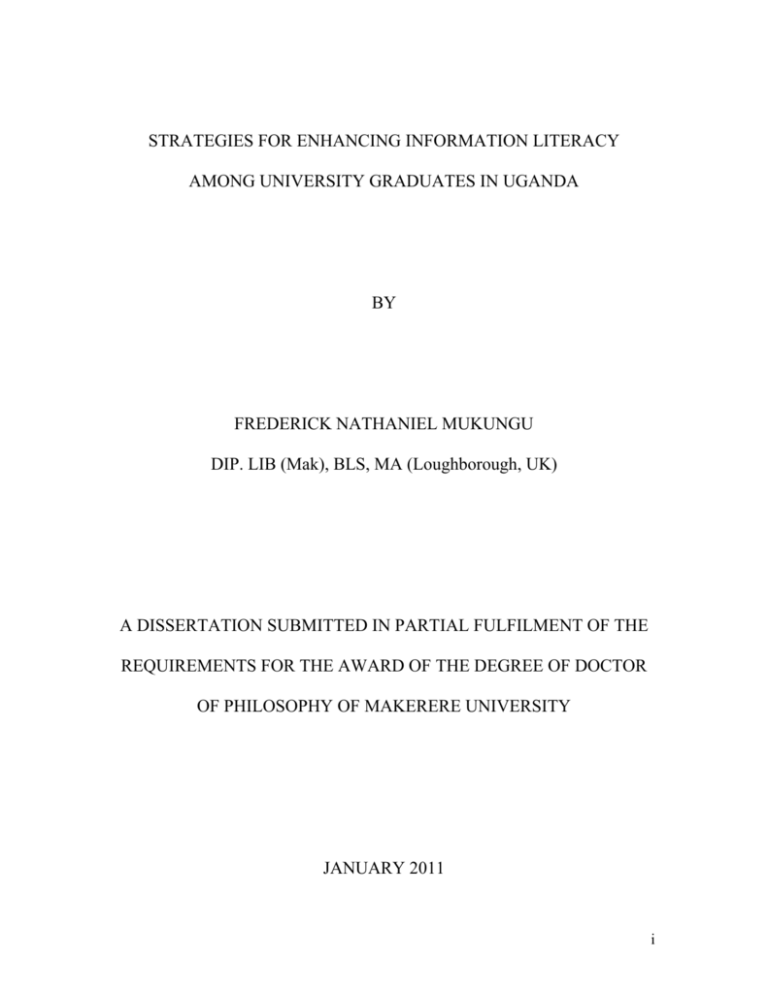
STRATEGIES FOR ENHANCING INFORMATION LITERACY AMONG UNIVERSITY GRADUATES IN UGANDA BY FREDERICK NATHANIEL MUKUNGU DIP. LIB (Mak), BLS, MA (Loughborough, UK) A DISSERTATION SUBMITTED IN PARTIAL FULFILMENT OF THE REQUIREMENTS FOR THE AWARD OF THE DEGREE OF DOCTOR OF PHILOSOPHY OF MAKERERE UNIVERSITY JANUARY 2011 i ABSTRACT Information has become a very important resource in every sector of operation. The society of the 21st Century depends on access to and use of information for its decision making, growth and development. The workplace of the present times demands an information literate university graduate, who knows when information is needed and can access, manage and use the vast amount of information available to him or her through multiple channels. Uganda particularly needs this because it has been rated among the poorest countries in the world (World Bank, 2007:1). The aim of the study was to develop strategies for enhancing information literacy among university graduates. The main research question is, how can information literacy among university graduates bring about development in Uganda. The research attempted to establish information literacy skills offered to university students and the employers’ expectations from university graduates. The study was both a quantitative and qualitative case study, researching on IL among university graduates in Uganda from four universities, two public and two chartered private universities. The total sample size of the study was 349 respondents. Purposive sampling was used to choose the sample size of 252 university graduates and their respective employers (workplaces). Semi-structured interview schedules were used to collect data. The findings showed that there were no informal IL programmes in the universities under study, except a few aspects of IL taught. There was no IL policy in place to enforce its implementation. The graduates confirmed this limitation and pointed out a number of IL skills required at workplaces which they were not taught at university. The employers had several IL expectations from university graduates among which were computer and Internet skills, research skills, library skills and reading culture. Various strategies were suggested by the respondents for enhancing IL among university graduates. From the findings of the study it was concluded that IL was not formally taught; consequently university graduates in Uganda lack adequate IL skills, hence do not make proper use of the information resources at their workplaces, thus resulting into poor service delivery and production. There is therefore a need for formal IL programs in the universities in Uganda for all the students to be instructed in IL skills in order to produce information literate graduates who can contribute towards the development of the country. ii



